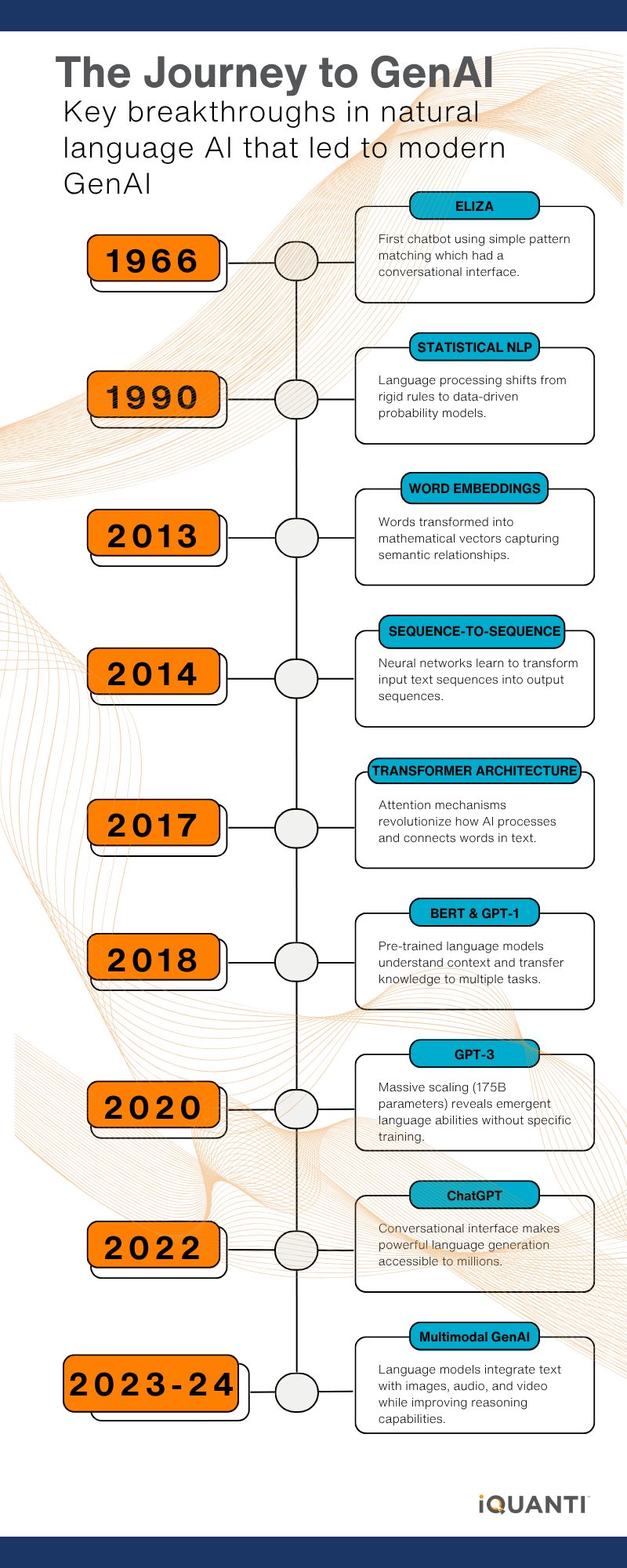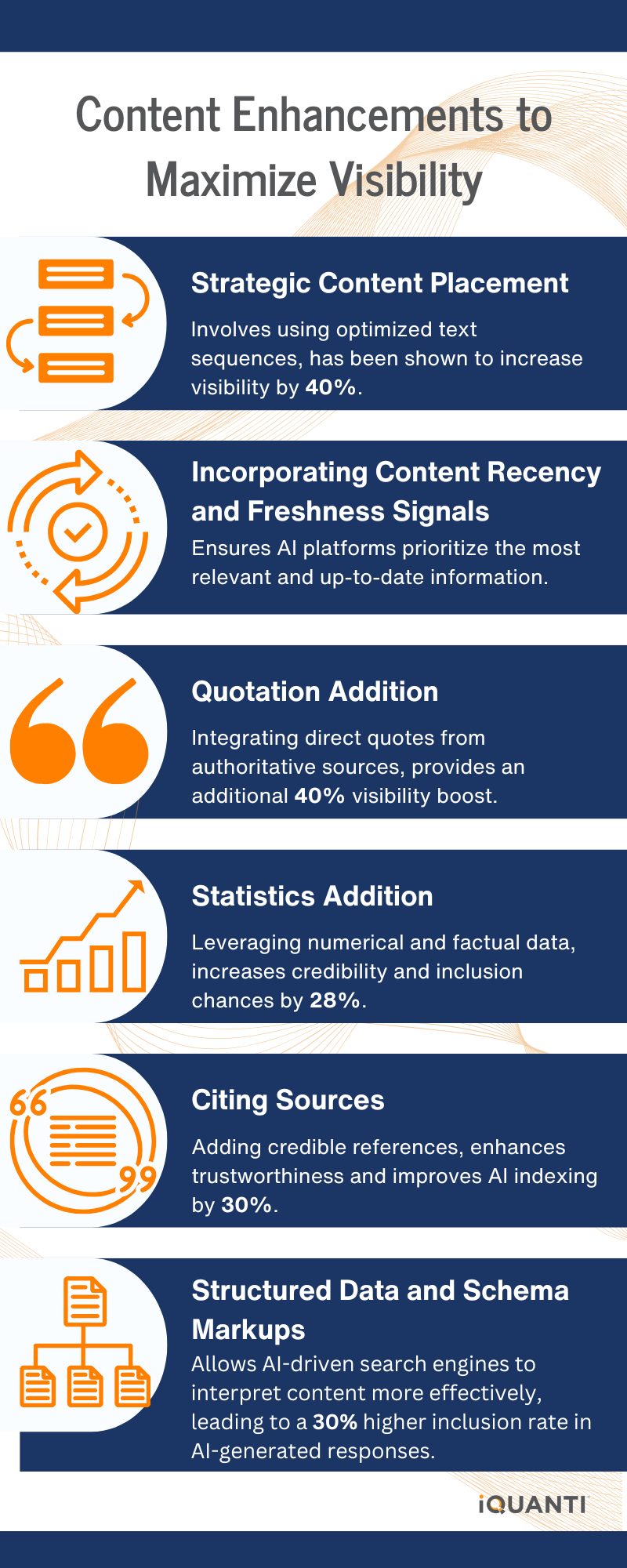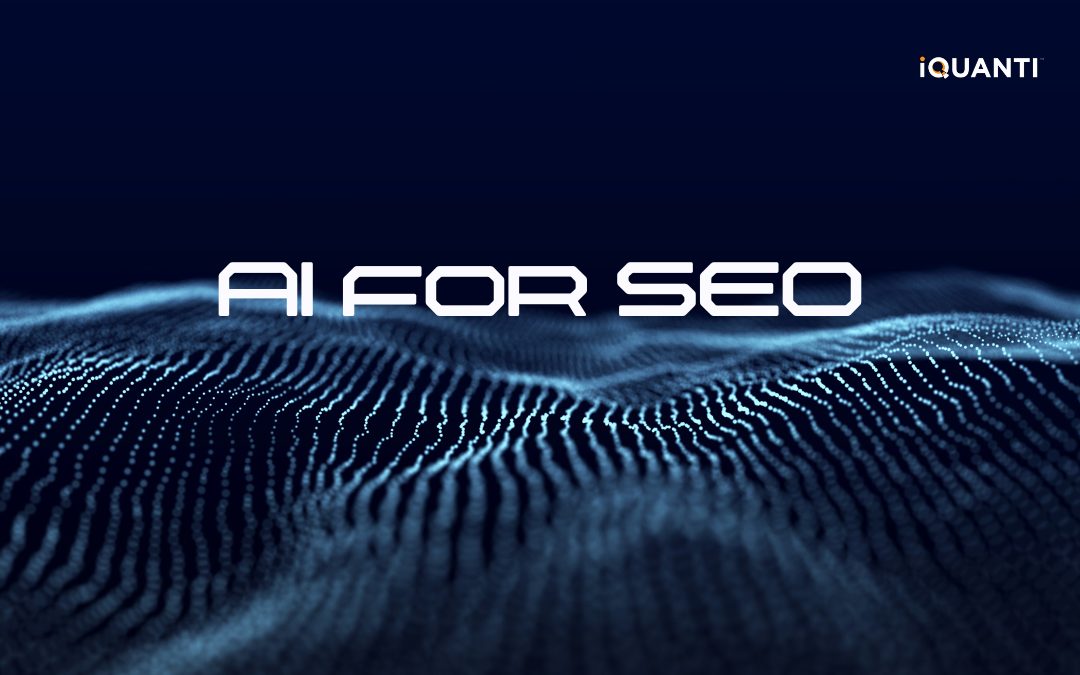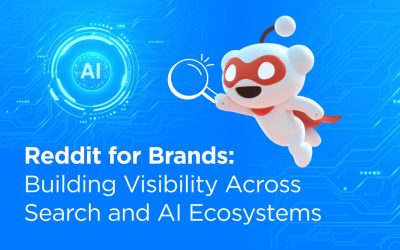GenAI and AIOs aren’t just a trend anymore – they are a seismic shift. When clicks are no longer guaranteed, then your strategy to stay visible must change too.
Is your SEO strategy ready for a clickless search experience? For digital marketers and SEO leaders, the question is not if AI will disrupt search, however, how fast it’s happening and how deep the impact of AI in SEO will be.
GenAI and AIOs are changing the rules of discoverability. Traditional SEO strategies built around keyword rankings, backlinks, and meta tags are facing a competition by AI generated responses, multimodal search, and conversational interfaces that skip the click altogether.
Users have started relying on GenAI platforms such as ChatGPT, Gemini, and Perplexity, among others, for instant answers. The question is how brands stay visible, relevant, and trusted in this changing digital ecosystem?
In this article, let’s breaks down what GenAI is, who’s leading the charge, what does AI-powered search looks like, where search is headed and what brands need to track and adapt as search becomes more AI-driven than ever.
What Is GenAI?
AI models capable of creating content, including text, images, code, and even music, based on prompts come under the umbrella of GenAI. Unlike traditional AI, which focuses on structured data processing and predefined rules, GenAI uses large-scale machine learning models, such as OpenAI’s GPT, Google’s Gemini, and Anthropic’s Claude, to generate human-like responses and insights.

Who Are the Market Leaders?
OpenAI (ChatGPT): OpenAI is a pioneer in conversational AI, with ChatGPT becoming one of the most widely used AI models. Its success comes from a combination of cutting-edge natural language processing (NLP), extensive training datasets, and strong API integrations that enable businesses to leverage AI-powered automation, customer interactions, and content creation.
Microsoft (Copilot): Microsoft has seamlessly integrated AI into its suite of productivity tools through Copilot, revolutionizing the way users interact with applications like Word, Excel, and Teams. With its deep investment in OpenAI and cloud-based AI services, Microsoft is driving enterprise-level AI adoption and automation at scale.
Google DeepMind (Gemini): Google’s AI division has positioned itself as a leader in multimodal AI with the Gemini model, capable of processing text, images, and audio simultaneously. Google’s search integration and vast data access give it a competitive edge in producing highly accurate and context-aware responses, making it a dominant force in AI-powered search and enterprise applications.
Perplexity AI: Perplexity is an emerging AI-powered search engine that aims to redefine information retrieval by integrating real-time web search capabilities with advanced AI models. Unlike traditional search engines, Perplexity provides direct, sourced answers with citations, offering users more transparency and accuracy. Its ability to synthesize web-based knowledge into concise responses makes it a rising contender in AI-driven search.
Anthropic (Claude): Known for its focus on ethical AI development, Anthropic’s Claude model has gained traction for its strong safety and reliability measures. By prioritizing AI alignment with human values and responsible AI use, Anthropic has established itself as a key player in sectors that require trust and compliance, such as finance, healthcare, and legal applications.
Cross-Platform Share of Search
As GenAI becomes more integrated into search platforms, its impact on user behavior and market share continues to grow. Google still holds over 86% of the search market, but its Search Generative Experience (SGE) is transforming how users engage with results by prioritizing AI-generated answers over traditional website links. This shift has affected click-through rates (CTR) for organic search, with more users finding direct responses within search engine results. Microsoft’s Bing, while holding a modest 2% market share, has differentiated itself through OpenAI integrations, offering AI-powered search experiences that have led to increased engagement.
Beyond traditional search engines, platforms like YouTube (holding 7% market share) and TikTok are emerging as strong competitors in AI-driven search. YouTube, the second-largest search engine, is leveraging AI to refine recommendations, automate video captions, and enhance search relevancy. Meanwhile, TikTok has become a preferred discovery platform for younger users, with 40% of Gen Z preferring TikTok over Google for searches. This trend highlights a broader shift toward multimedia and social-driven search experiences.

GenAI Continues to Grow at a Rapid Pace
GenAI adoption is growing at an unprecedented rate. According to a recent report by McKinsey, GenAI adoption has doubled in the past year, with one-third of companies already integrating AI-driven tools into their workflows. OpenAI’s ChatGPT reached 100 million users within two months of its launch, making it the fastest-growing consumer application in history. Meanwhile, Google’s Gemini and Microsoft’s Copilot are being embedded into enterprise systems, fuelling rapid adoption in professional environments.
The global GenAI market is projected to grow from $44 billion in 2023 to $207 billion by 2030, reflecting a compound annual growth rate (CAGR) of 32.2%. Businesses are leveraging GenAI for automation, customer engagement, and enhanced decision-making, leading to an exponential increase in enterprise and consumer use cases. This rapid expansion signals the future of search engine optimization will be increasingly dependent on understanding and adapting to these AI-driven technologies.

How GenAI is Shaping the Future of Search and SEO
Traditional search is evolving rapidly thanks to AI-powered search engines like Google’s SGE and Microsoft’s AI-driven Bing. Instead of returning a list of links, GenAI models provide direct answers, summaries, and contextual insights, altering the user journey. While this shift enhances user experience, it also challenges SEO strategies, demanding new AI for SEO approaches to content optimization.
- AI-Generated answers: Instead of just displaying a list of websites, AI-powered search engines generate summaries and new content based on their training data. Google’s SGE and Microsoft Bing AI create synthesized responses, reducing users’ need to click on external links. According to a report by BrightEdge, AI-powered results have already begun to shift traffic patterns in search engines, requiring businesses to implement AI in SEO and adapt their content strategies accordingly.
- Contextual awareness: AI search models understand natural language better, improving the accuracy of responses by incorporating contextual factors. For example, Google’s AI search enhancements now analyze the full query rather than just matching keywords, leading to more precise and relevant results. This has led to increased voice search effectiveness and enhanced personalization in search engine interactions.
- Multi-source integration: AI-powered search engines pull information from multiple sources and present a synthesized response. Unlike traditional search engines that return independent results, AI consolidates content from various authoritative sources to provide users with a more comprehensive answer. According to research by Moz, this approach improves user experience by reducing search friction and providing diverse perspectives in a single response. This evolution highlights the growing importance of AI-powered SEO strategies that can work effectively within this consolidated information environment.
- Conversational search: AI search is increasingly adopting a conversational approach, allowing users to ask follow-up questions and refine their queries without starting a new search. This evolution is evident in Google’s continuous conversation feature and ChatGPT’s search integrations, making search interactions more intuitive. As AI and the future of SEO are intertwined, businesses need to optimize for query chains and topic clusters rather than isolated keywords.
What Is an AIO?
An AIO is generated in the Google SERP based on your query. It processes and understands the intent behind your query and finds supporting citations and references (including its own knowledge base) to compile an answer that best meets your need. This answer is supposed to be more comprehensive and multi-faceted, deriving from several sources. This is a change from the old Google answer box which pulled content from a single source and quoted exact text from a single webpage.

What Types of Queries Trigger an AIO?
AIO-triggered responses are typically seen in informational and educational queries where AI models can provide synthesized answers. These include:
- Fact-based queries (e.g., “What is the capital of Japan?”)
- Comparative queries (e.g., “iPhone vs. Samsung camera quality”)
- How-to and instructional queries (e.g., “How to improve SEO rankings”)
- Product and service searches (e.g., “Best laptops for video editing 2024”)
- Health and finance-related queries (e.g., “What are the symptoms of iron deficiency?”)
The query type may determine whether an AIO is generated or not. There is also a correlation between the length of your query (which makes it more conversational) and when the AIO is shown. The chart below shows the correlation data accordingly:

What is the impact of AIOs across industries?
AIOs are becoming increasingly prominent in Google’s Search Engine Results Pages (SERP), influencing rankings, visibility, and content discovery. AIOs are particularly evident in industries where users seek highly detailed, data-driven, and transactional content.
In finance (the lowest category currently impacted), AI-generated results are surfacing for queries related to investment insights, credit scores, and market trends. Users enjoy instant, AI aggregated summaries instead of being redirected to third-party websites.
Healthcare queries, such as symptom checkers and treatment options, are now increasingly answered through AI-powered knowledge panels, reducing CTRs to medical content websites.
In e-commerce, AI-driven product recommendations and pricing analyses are reshaping how users interact with search results, with platforms like Google Shopping integrating AI-enhanced listings.

How Can I Measure My Brand’s Performance in GenAI?
As AI-driven search continues to evolve, brands must assess their visibility within AI-generated responses. AI in SEO is becoming critical, with businesses needing to measure Share of Voice (SOV) in GenAI platforms involves tracking how frequently a brand appears in AI powered search results, knowledge panels, and conversational AI summaries. Businesses can analyze their brand visibility by leveraging tools that track AI-generated citations, knowledge graph placements, and ranking within AI-powered search snippets. Monitoring engagement metrics such as CTR on AI-surfaced content and brand mentions in AI-assisted recommendations can offer deeper insights into brand performance. Additionally, conducting structured data optimization and improving content authority can enhance a brand’s prominence in AI-generated results, ensuring higher visibility across emerging AI search landscapes – an important step for succeeding in the future of search engine optimization.
#LearnWithiQuanti: What is Share of Voice (SOV)?
SOV is a metric that tells you how much brand presence you own in your market compared to competitors. It tracks visibility across channels like paid media, organic search, social, and PR.
Why It Matters?
More visibility leads to more mindshare, which in turn drives more market share. SOV is often a leading indicator of growth and brands with higher SOV tend to grow faster, especially in competitive markets.
Near Term Learnings: Preparing for the Future of Search
Recent studies indicate that traditional ranking factors are shifting in AI-driven search environments. Google Organic Keyword Rankings and Bing Organic Keyword Rankings continue to hold the highest correlation with visibility in AI-powered search results. This means that strong keyword performance in traditional search often translates to inclusion in AI-generated snippets and summaries.
Google and Bing SERP Features, such as knowledge panels, featured snippets, and AI-driven overlays, show a moderate correlation, influencing visibility but requiring structured data and content optimization to be surfaced effectively. Domain Authority and Backlinks, previously critical in traditional SEO, now have a lower correlation with AI-driven search results, as AI models prioritize contextual relevance, structured data, and entity-based relationships over traditional link-building strategies. These insights highlight the need for brands to focus on content relevance, structured metadata, and AI for SEO techniques to improve their presence in AI-powered search experiences. As AI continues to transform search, understanding AI and the future of SEO is critical brands must prioritize strategic content enhancements to maximize visibility in AI-powered environments.

Implementing these strategies will help brands align their content with AI search algorithms, ensuring greater discoverability and higher engagement in AI-powered search results.
Upcoming Testing and Takeaways
We are further refining our understanding of AI-driven search through extensive testing and modeling to assess key factors influencing visibility. At iQuanti, our research will focus on content relevancy, analyzing whether semantically rich content, as identified by ALPS, has a greater likelihood of appearing in generative search results. Additionally, we will evaluate the impact of asset type diversity—including text, images, videos, and infographics—on AI-driven rankings. Social listening signals, such as shares, likes, and comments, will also be measured to determine their influence on large language models (LLMs).
Other areas of analysis include link equity, assessing whether backlinks enhance the likelihood of a page being surfaced in AI-generated responses, and answer structure, exploring whether systematic response formatting affects ranking outcomes.
We will also track the average number of sources cited per query type, analyze page speed’s effect on AI-driven crawling, and examine the correlation between ALPS technical health scores and overall ranking performance. These tests will provide actionable insights to optimize content for the next era of AI-powered search.
Want to stay ahead in the AI Search game? Get in touch with experts at iQuanti.




